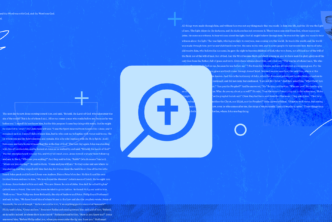This week is Holy Week. And though we are in the final days before the highest annual joy of the Christian Calendar–Easter–these days are meant to be marked by the deepest and most difficult times of meditation on suffering and death. The inner tension is to be cranked up high so that when Easter comes, we feel a tangible relief in our worship and adoration. And so, this week, we dive deep into the Darkness and Death that grips the world, to prepare for God’s overcoming in raising Jesus.
First, though, we need a soundtrack for this week.
To that end, my I suggest my two favorite pieces of music for this time. First, is Mozart’s Requiem. The final piece he wrote before he died–itself a meditation on death. This is the most powerful performance I know of this astonishing piece:
https://www.youtube.com/watch?v=S2Ur-FosFvo
The second is Sergei Rachmaninoff’s Vespers, intended for use in the Russian Orthodox Church on Holy Saturday, the day of silence following the Crucifixion. It’s meant to hold us in that dark, yet shimmering tension between twilight and dawn. Here is my favorite recording I’ve been able to find:
Now for other helps in this time.
Last week, Jesus called Home a church planter and writer whose words have impacted many. Her name was Kara Tippetts, and her blog Mundane Faithfulness became a place in which she walked the world through her process of dying. Her heart was so beautiful. She wrote a powerful letter upon her death that we should all read this week.
Ann Voskamp, one of the most beautiful writers alive today, wrote a stunning tribute to Tippetts. It will move your soul. It so beautifully brings us into this Holy Week, meditating on the lament and beauty of pain, suffering, death, and life, and how Kara reminded us how to die well.
Speaking of dying well, I can’t suggest enough Rob Moll’s book The Art of Dying. It strengthens, encourages, and teaches us how to reclaim this ancient Christian discipline.
Last week, The New York Times posted this beautiful reflection by Jo McElroy Senecal on the process of watching loved ones die. As a counselor herself, she brings an insight into what this does to us and how we grow in a world so full of Death.
As seminarians, we need to feel the depths and woundedness of our humanness, and that even means connecting with and inhabiting the space of non-Christians. The greatest contemporary writer on Death that I know is Julian Barnes, in his memoir Nothing to be Frightened Of. In it, Barnes–not a Christian–gives insight into the fear and pain of facing death without God. And as future ministers, if we have nothing we could say to how he processes this, we should figure it out.
Ben Myers, professor at United Theological College in Sydney, has this brief post on the Cross, that brings us into the heart of its mystery, brokenness, and beauty.
Lastly, I will leave you with this quote by G.K. Chesterton, from Orthodoxy:
When the world shook and the sun was wiped out of heaven, it was not at the crucifixion, but at the cry from the cross: the cry which confessed that God was forsaken of God. And now let the revolutionists choose a creed from all the creeds and a god from all the gods of the world, carefully weighing all the gods of inevitable recurrence and of unalterable power. They will not find another god who has himself been in revolt. Nay (the matter grows too difficult for human speech), but let the atheists themselves choose a god. They will find only one divinity who ever uttered their isolation; only one religion in which God seemed for an instant to be an atheist.
May you all have a fruitful Holy Week.
photo credit




